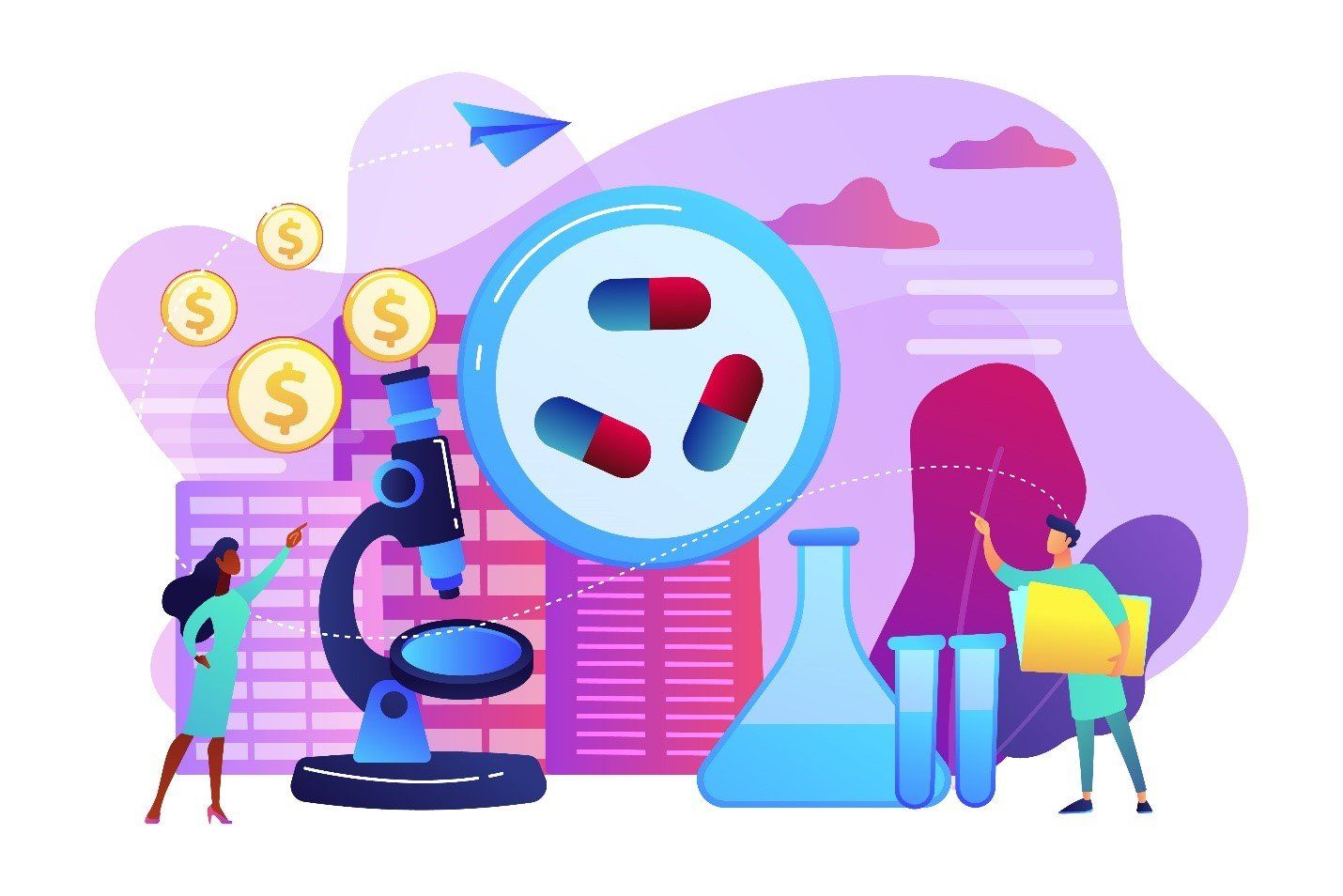How can Digital Marketing Strategies Revolutionize Health Industry
The healthcare industry is always seeking out the latest technological breakthrough. Be it a brand new better treatment, revolutionary facility, or the development of specialist areas for physicians. Healthcare institutions are constantly striving to offer a better standard of care to patients. Like other professions, healthcare has an extensive public. At present, consumers are more dependent on apps and websites. This is why it's essential to be aware of digital marketing to ensure that your company is at the forefront of innovation, even online. Utilize these six tips to create an effective digital healthcare marketing strategy that can bring in leads and patients in the current market centered around patients.
Digital transformation has made it easier to play the pace of healthcare. Patients have more options and ways to track their health online and get treatment. For healthcare companies, the most effective way to succeed is to establish a solid online presence and successfully implement mobile-first marketing strategies that put you in front of patients on the internet. While digital marketing methods have transformed numerous industries, the healthcare sector, in contrast, is lagging. Although it is not entirely affected by this, many segments of the industry aren't yet able to comprehend how global reach can be achieved through digital strategies for marketing.
How can digital marketing promote a hospital?
- Increased Use on Mobile Phones
Many people, including millennials, are turning to their mobiles to get information—everything from checking out the latest football scores to the latest news available. The newest trend in technology could bring about a change in the marketing of healthcare in digital format. Mobile devices like tablets, phones, wearables, and others handheld gadgets have been a raging trend since the first mobile phone became a reality. They've been a constant source of entertainment things. It turns out that they're being employed in the medical field recently.
Back in the day, there was a concentrate on one specific illness, but with the advancement of lifestyle comes a definite compromise on the fundamental health of the population. This is undoubtedly a need for greater awareness and specialized treatment. With the "touch" the convenience of our smartphones and tablets, the physical activity we experience in our everyday lives has drastically decreased to the level of 50%. The use of the healthcare industry is growing at an accelerated pace that the entire market is growing in mobile technology. In addition, there are perks that mobile app development services offer. Businesses that have never influenced this industry are rapidly becoming their most potent power-peddlers. Healthcare technology has advanced a lot, from registration of patients to monitoring data and lab tests to self-care tools.
Tablets, smartphones, heart rate monitors, and running watches have been taking over traditional recording and monitoring systems. The users are now given the possibility of getting an entire consultation at the comfort of their homes. For instance, patients can now have their blood pressure tested at home by appointment or via mobile apps available on the cloud. I had my grandmother's diabetic check-up right at home and with a single click. It's as simple as that. The use of all smart devices isn't only exclusive to patients or medical professionals but is also used to facilitate the health care life cycle's overall functioning. Doctors have a fair chance to avail themselves of the privileges, too.
- Digital metrics monitor everything.
Digital metrics are compelling and can track any information related to trends, events, or other information that will, over the long term will help run an effective campaign. PAC (Patient Acquisition Cost) usually provides "a-ha" instances when healthcare providers are contacted with poor or broken marketing strategies. It could open the eyes for those focused on one particular lead acquisition plan, frequently leading to the need to start looking at alternatives that could continue to attract new patients but not soaring in acquisition costs. When compared with the longevity value or retention, PAC can reveal, for example, that certain companies are acquiring patients at an even pace. However, they aren't keeping the patients coming back.
In a subject so personal as healthcare, the experience is crucial. The measurement of satisfaction with patients can help get a pulse of the overall sentiment of the patient but also identify any areas of friction or gaps within the patient experience. Most often, surveys on patient satisfaction can be conducted via telephone or via conventional consumer satisfaction (CSAT) surveys sent via text or email following an appointment, phone call or surgery and so on. These scores can be compiled to create a score for a group of five and then compared against industry standards for healthcare.
- Contact via Email Marketing
Hospitals can reap the many benefits of email marketing in reaching patients. Marketing via email isn't cheap. However, it's affordable. Your audience is electronically connected and can be addressed individually. Healthcare-related email marketing is among the top options.
Furthermore, today's INBOX is an effective communication channel. People who use the internet (75 %) are looking for branding, shopping, and other details through email. In the overall picture, more than 90% of people prefer to visit a doctor's office which offers email communication. These figures show how email continues to be present and a digital tool to increase awareness, acquire retention and convert.
- Create Patient Portals
Digital marketing tools today hold the promise of prompt and quality treatment for patients and less cost and empower your business and your patients throughout the customer journey. Unfortunately, Healthcare organizations that do not pay attention to these strategies are not just limiting their capabilities and the services they provide. Still, they are also at risk of disadvantaging the vast majority of patients who go to online and mobile clinics.
Nobody likes having to visit a doctor's clinic or go to an emergency room for a medical check-up and renew prescriptions, or access vital health records every single time. Accessing your patients to an online portal for patients will help your medical staff, doctors, and medical staff and give your patients what they want to get their time back. In a study conducted by CDW Healthcare, 89% of patients would like quick and easy access to their medical records. In addition, a survey conducted by Accenture suggests that as high as 78% of people are keen on receiving online healthcare.
Based on Accenture's 2017 Consumer Health Survey, 56 % of consumers are using websites to monitor their health. In addition, 46% of them use smartphones or tablets to make doctor appointments, while 38% have access to their health records online. As illustrated in the chart below, patient portals and virtual healthcare are more effective for providing timely medical care to patients, reducing medical costs, and accommodating doctor and patient schedules. Patient portals benefit doctors and patients alike. They reduce time and increase efficiency. Suppose you'd like to impact your customer base of patients. In that case, it is essential to think about online portals and other apps and tools for health virtualization to improve your online offerings.
- Get Your Patient's Micro-Moments
Have you ever experienced the "I have to be aware" moments when you feel an urgent need to know concerning skin cancers or stem cell treatment? These micro-moments occur more often than we realize, and we will turn to our phones or other devices in our pocket to find something and demand immediate answers at a moment's need. The micro-moments of your patients are an opportunity for you to present your brand precisely where clients are looking. Being in a position to answer these questions and being present at these micro-moments can lead to conversion. Google states that customers and patients prefer brands that can meet their requirements during these moments of micro-moments. For healthcare, these are the four key micro-moments to be aware of so that you can optimize your strategy for marketing when they occur:
- What's wrong with me? Be prepared to address any questions from patients by optimizing your website's pages by creating content that answers the questions, including explaining videos and blog entries and infographics.
- What can I do to get help? This is the reason getting your business's name online and on Google is crucial as "near me" searches are essential, particularly for health-related services. It is necessary to ensure you're found on Google Maps where your practice is situated so that search engines can provide online recommendations based on proximity to patients.
- Who can I trust? Once healthcare providers have been identified based on the proximity of their location, online feedback, reviews, and content that builds trust can be the reason for prospective patients to contact you.
- What can I do to book an appointment? This last step is essential to get the first call and the conversion to driving. Make sure that your booking information and contact information is simple to locate. Provide a seamless booking process to make booking as simple as is possible.
- Leverage Patient Feedback, Reviews
In the search for a health service we can trust, we look to the positive reviews of their past patients or look up reviews on the internet. Recommendations and feedback from patients often serve as the main reason for new visits to a doctor. In reality, 97% of customers read reviews about local businesses, which influences the buying choices for 93% of shoppers. Thoughts effectively make social evidence, increasing credibility and confidence while also providing you with an opportunity to interact with your clients. Review and feedback should be placed prominently if you have a website or on your social media pages. Video testimonials from your customers effectively communicate your story as a brand, increase trust, and boost conversion. Also, solicit reviews from your customers as often as you can. Always follow up on feedback, and take advantage of it as a chance to assess their experience with your healthcare and find ways to enhance your services. This is a great way in building confidence and trust in your practice and.
Conclusion
Everyone is susceptible to making mistakes. Be aware of their mistakes and attempt not to copy their mistakes. This will make sure that your digital marketing efforts will yield the most effective results you can achieve.
Revisit a section
- How can Digital Marketing Strategies Revolutionize Health Industry
- How can digital marketing promote a hospital?
- Increased Use on Mobile Phones
- Digital metrics monitor everything
- Contact via Email Marketing
- Create Patient Portals
- Get Your Patient's Micro-Moments
- Leverage Patient Feedback, Reviews
- Conclusion




